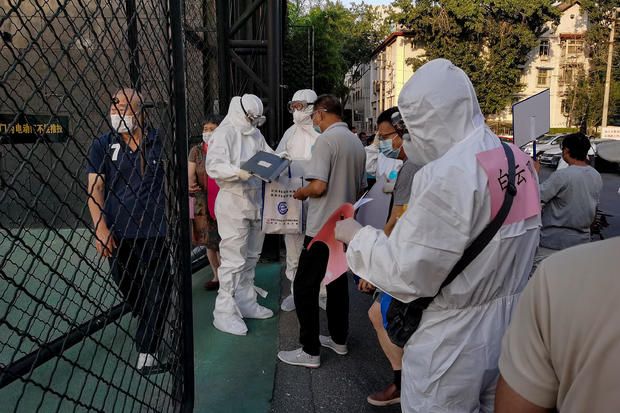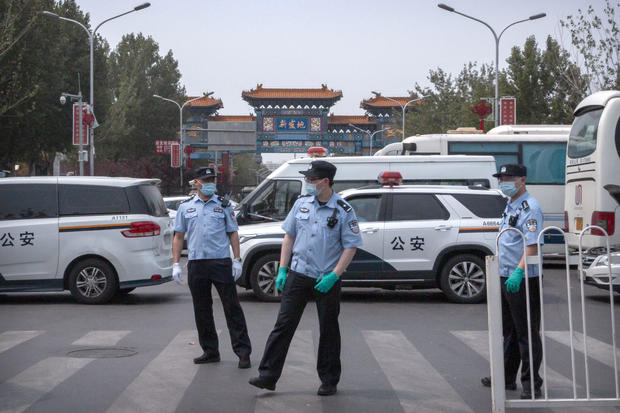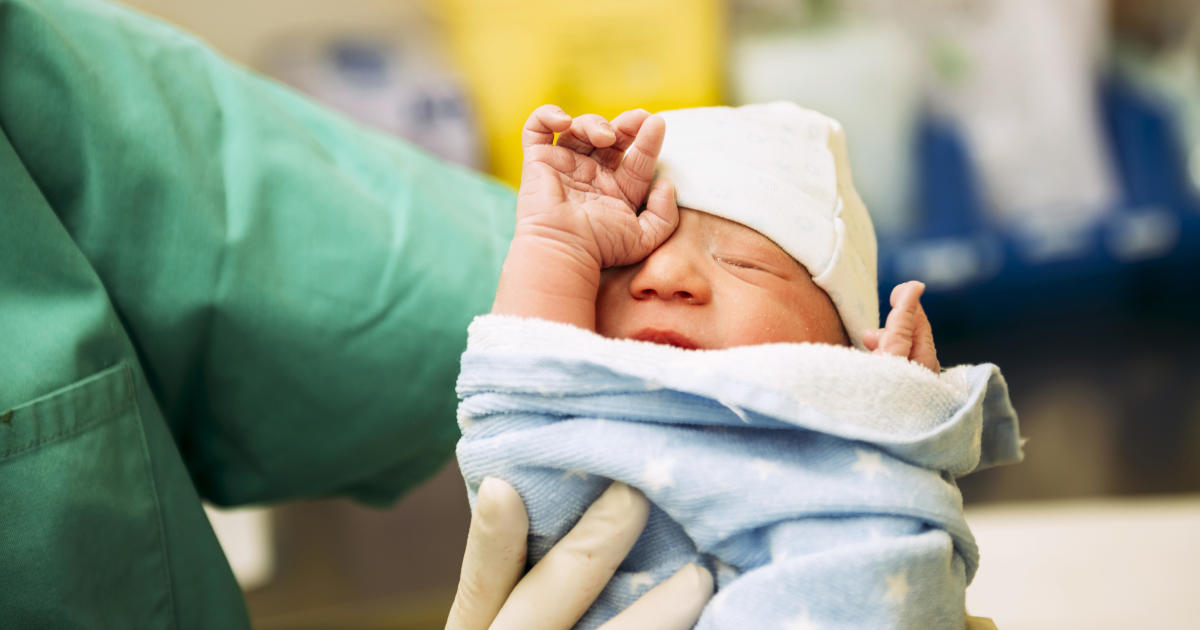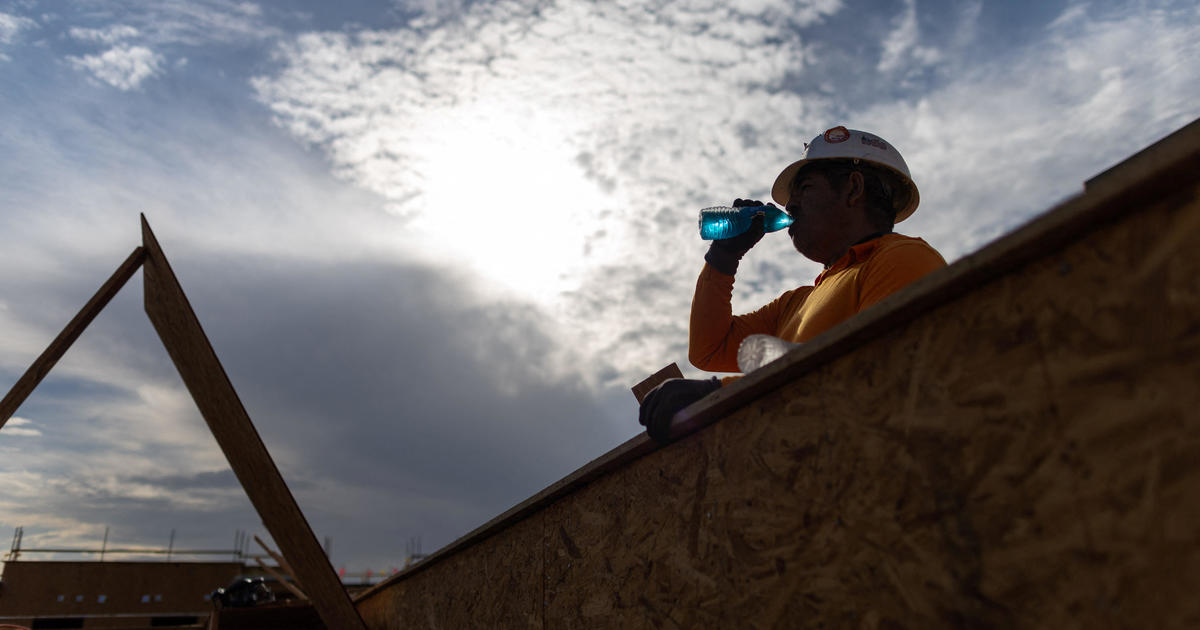China warns "very high" risk of new Beijing coronavirus cluster spreading
Beijing — Officials in China's capital city reported 36 new, locally transmitted cases of COVID-19 on Monday. The update brought the total number of new cases to 79 since last Thursday, when the disease reappeared after almost two coronavirus-free months in Beijing. The World Health Organization said the number of cases in Beijing had risen to 100 over the course of the day, including likely to be reported Tuesday morning by the Chinese government.
The cluster is now the biggest the capital has had to deal with since February. The sudden resurgence of the virus is linked to the Xinfadi market, the biggest wholesale food market in Asia, and it has prompted city officials to lock down the market and several neighborhoods around it in a bid to prevent a broader second wave of infections.
At a state council meeting on Sunday, China's vice premier Sun Chunlan said the risk of the new outbreak spreading was "very high," and she called for decisive action to prevent that happening, according to the state-run news agency Xinhua.
"Beijing has entered an extraordinary period," city government spokesperson Xu Hejian said Sunday. City leaders have fired several officials in Fengtai District, where the new cluster originated, for misconduct in implementing epidemic control measures.
Beijing's outbreak has already spread to neighboring Hebei province, where three new cases were reported on Monday, and Liaoning province, where two cases were confirmed on Sunday. Both provincial health authorities said all the new cases were known to have been in close contact with patients from Beijing.
More than 21 neighborhoods in the capital have been put back under full lockdown, with 90,000 residents ordered to take COVID-19 tests. More than 8,000 staff from the Xinfadi market have been tested and are under quarantine and medical observation.
Huaxiang, an area in the same district as the food market, raised its epidemic risk level to "high" on Sunday, becoming the only area in the country to go back on high alert.
In several districts, 24-hour security checkpoints have been established to carryout temperature checks and verify personal health codes on the government smartphone app all citizens are required to use.
Many schools in four districts have either been closed entirely, or left open only for graduating classes. Indoor sports and entertainment venues across the capital that had already reopened were ordered to close again, and any with plans to open imminently were told to put those plans on hold.
"The containment efforts have rapidly entered war-time mode," senior city government official Xu Ying said Monday, adding that 7,200 residential complexes were on the "battlefield" and being closely watched. He said about 100,000 epidemic control workers had been deployed.
The control workers were deployed to residential complexes for what officials described as a citywide "knock-knock" operation, to identify anyone who recently visited the Xinfadi market or who had been in contact with someone else who was there.
Some 200,000 people who visited the market since May 30 had already been traced and ordered to self-quarantine by Monday, pending the result of COVID-19 tests, which were being arranged.
Many Chinese cities, including Harbin and Dalian, have urged residents not to travel to the capital and to report to authorities if they have done so recently.
The new cluster of infections linked to a food market has given some Chinese people flashbacks to late last year, when the original coronavirus outbreak was quickly traced to a market in Wuhan.
"Beijing will not turn into a second Wuhan, spreading the virus to many cities all over the country and requiring a [national] lockdown," government epidemiological expert Zeng Guang told the state-run Health Times newspaper in an article published Sunday.
An epidemiologist with Beijing's government has suggested the genome sequencing of the virus found in the Xinfadi market suggests it may have come from Europe. "But we still can't determine how it got here. It might've been from contaminated seafood or meat, or transmitted by people inside the market via their secretions," Yang Peng told state television network CCTV on Sunday.
Wu Zunyou, chief epidemiologist at the Chinese Centers for Disease Control and Prevention, said Monday that the number of cases reported in Beijing over the next three days would determine the scale of the problem.
"If the number of cases doesn't increase significantly, it means that the epidemic will basically stabilize," he told CCTV.





